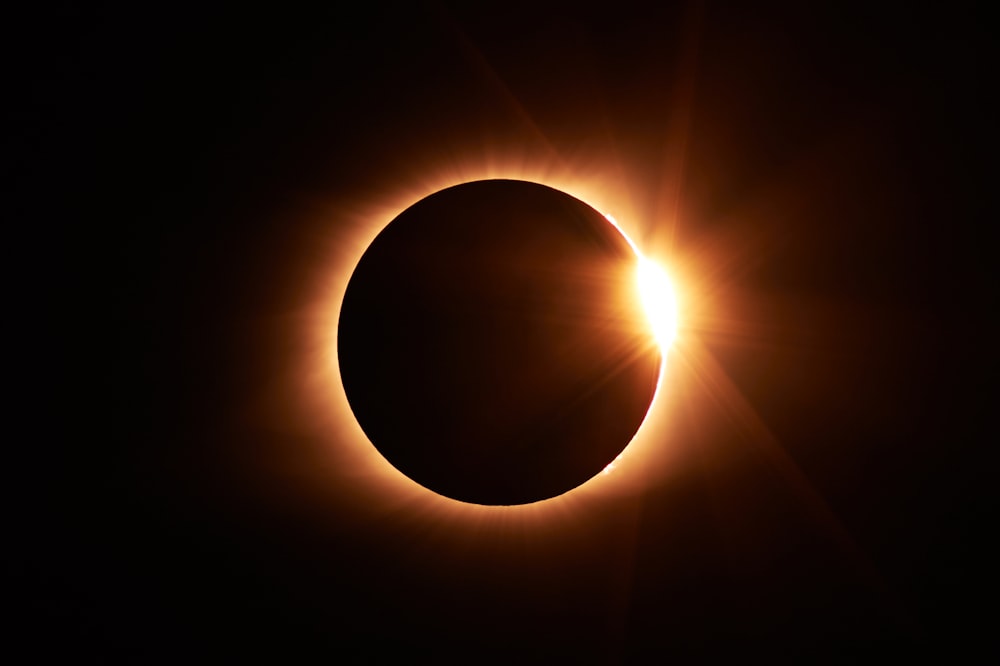 |
Want to become a writer at Eat My News? Here is an opportunity to join the Board of Young Leaders Program by Eat My News. Click here to know more: bit.ly/boardofyoungleaders
Want to become a writer at Eat My News? Here is an opportunity to join the Board of Young Leaders Program by Eat My News. Click here to know more:
What Is a Solar Eclipse?
A solar eclipse occurs when the Moon passes between the Sun and the Earth,
thereby partly or totally covering the image of the Sun for the residents on
Earth.
Similarly,
an annular Solar eclipse occurs when the Moon's apparent diameter appears just
a little smaller than the Sun's, blocking most it's light and causing the Sun
to look like a ring. This eclipse can be seen even with the region as wide as
thousands of kilometers.
There
are three types of solar eclipses-
•
Total solar eclipse - It is only
visible for a limited area on Earth. For this event to occur, the Sun, Moon and
Earth must be in a straight line.
•
Partial solar eclipse - It happens
when the Sun, Moon, and Earth are not exactly in a straight line.
•
This is the type that will happen on 21st June 2020. It is known as the Annular Solar
Eclipse and it occurs only when the Moon is farthest from the Earth.
For
India, this is the first Solar Eclipse of 2020. This comes India had an eclipse
in December 2019. It is going to be an annular solar eclipse, where a Ring of
Fire will be formed. How? Read on to know more.
On
June 21st, the annular eclipse will first start for the people of Africa
(Congo) and then it will progress through South Sudan, Ethiopia, Yemen, Oman,
Saudi Arabia, the Indian ocean, Pakistan before progressing towards our nation,
India over Rajasthan.
When Will It Be Seen in India?
At
09:15 a.m. IST, the partial Solar eclipse will begin in India. Then, after
sometime at around 12:10 p.m. IST, the partial Solar eclipse will attain its
maximum form of an annular eclipse. After approximately 3 hours that is by
03:04 p.m. (as stated), the annular Solar eclipse will end.
The
Eclipse will run through a narrow corridor moving through the cities of
Rajasthan, Haryana, and Uttarakhand.
As
mentioned before, a solar eclipse occurs only when the Moon comes between the
Sun and the Earth. In some cases, it blocks so much area of the Sun and places its
ant umbra shadow on the Earth living a huge area of brightness.
Lunar
eclipses are safe to watch from the Earth. Whereas, watching Solar eclipse with
naked eyes can lead to serious repercussions like complete or/and permanent
blindness.
Do You Want to Have an Experience of the
Ring of Fire With Your Own Eyes?
The
ministry of sciences has issued advisories stating that the eclipsed Sun should
not be viewed with the naked eye even for a very short time. You can watch the
Solar eclipse outside ONLY if you have either the Solar filters or Eclipse
glasses.
For
the people without filters for eclipse glasses, there will be a live telecast
of the eclipse by platforms such as TimeandDate
or Slooh on their YouTube channel.
More Details for Enthusiasts
Since
the Moon will cover about 98.8 % of the Sun's disc, the aforesaid Ring of Fire
is expected to be very slim during the eclipse (which is why "ring").
This makes it the "Deepest" annular eclipse of the century in India.
According
to many experts, the Sun may appear as a "necklace" of shiny beads
due to light obstructing from the Moon's hills and valleys (As stated by an
astrophotographer Ajay Talwar).
The Eclipse will be visible in India from different places at different points of
time. This will happen between 09:56 a.m. and 02:28 p.m.
- For Delhi, the eclipse will begin at 10:19 a.m. and end at 1:48 p.m. with the annular phase beginning at 12:01 p.m.
- For Kolkata, the eclipse will begin at 10:46 a.m. and will end at 02:17 p.m.
- For Mumbai, it will begin at 10:00 a.m. and end at 01:27 p.m. (All the timings mentioned are in accordance with the IST)
When Will This Phenomenon Occur Again?
After
the Solar eclipse of June 21, 2020, the next phenomenon of this kind will occur
in June 2021. But as for India, (according to sources) the next visible eclipse
is 11 years from now that is in 2031. This fact makes it a big astronomical
appearance for India. The Covid-19 situation has many sky gazers disappointed
as they will not be able to enjoy the eclipse as they had planned.
Written by - Ritika Singh
Edited by - Bushra Makhdoomi




.jpeg)





0 Comments